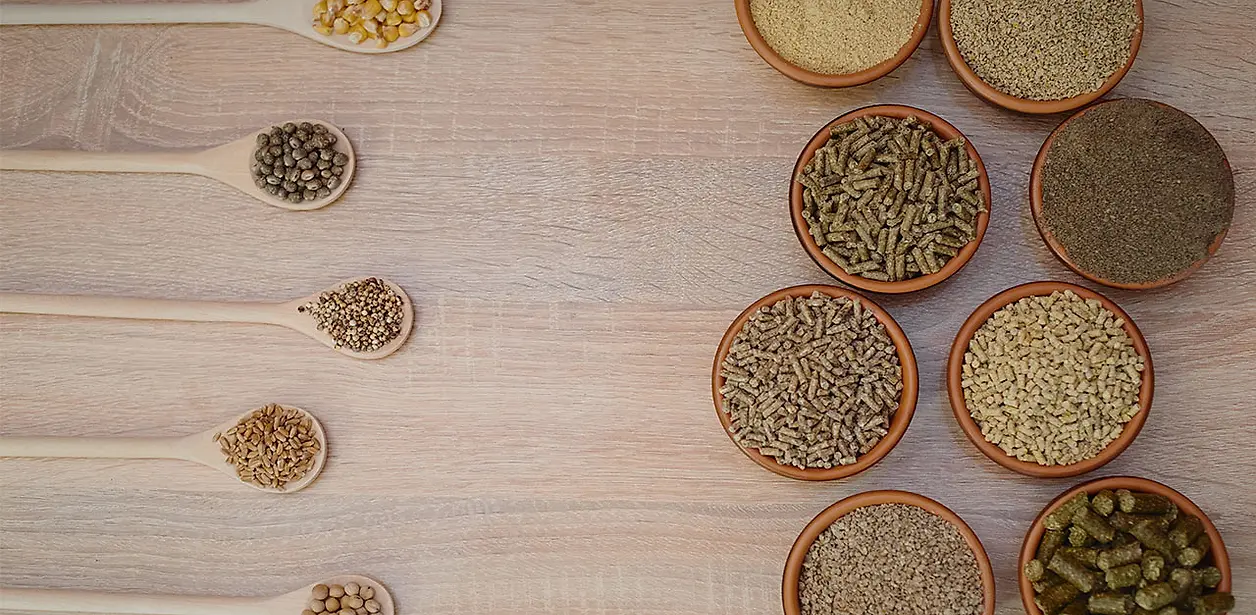ISO 43672 Crude Fat Residue Testing in Oilseed Meal
The ISO 43672 standard is a crucial tool for food and feed testing laboratories, particularly when dealing with oilseed meal. This method specifies the procedure for determining the crude fat residue content in oilseed meals by gravimetric analysis after incineration at high temperatures.
Crude fat content is an essential parameter that influences the nutritional value of oilseed products used as animal feed ingredients. It helps ensure consistency and quality, which are critical factors in maintaining the health and well-being of livestock. Understanding crude fat levels allows for precise formulation of feeds to meet specific dietary requirements.
The process involves drying the sample at 105°C until constant weight is achieved. Subsequently, the dried sample undergoes incineration at temperatures exceeding 525°C over a period of time sufficient to ensure complete combustion of all organic matter except carbonized ash. After cooling and weighing, the difference between initial and final weights represents the crude fat residue.
Accurate determination of this parameter is vital for regulatory compliance and quality assurance in the food & feed industry. It ensures that products meet specified nutritional standards set by governing bodies such as the European Commission or the Food & Agriculture Organization (FAO).
The precision and accuracy of ISO 43672 testing contribute significantly to enhancing consumer confidence, especially regarding safety and quality assurance. Inaccuracies in crude fat residue measurement could lead to underestimation or overestimation of caloric content, affecting nutritional balance.
Given the critical role played by oilseed meals in animal nutrition, rigorous adherence to established methods like ISO 43672 becomes indispensable. This not only supports compliance with international standards but also fosters trust among stakeholders involved in this sector.
Moreover, regular monitoring through such tests helps identify any variations or inconsistencies early on, allowing for corrective actions before they escalate into larger issues affecting product integrity and reputation.
Why It Matters
The importance of ISO 43672 Crude Fat Residue Testing in oilseed meal cannot be overstated. Accurate measurement is paramount for several reasons:
- Nutritional Balance: Ensures that feed formulations are balanced correctly, providing appropriate amounts of essential nutrients.
- Regulatory Compliance: Helps meet statutory requirements imposed by various countries and international organizations.
- Consumer Trust: Builds confidence among consumers who rely on safe and high-quality products.
These factors collectively contribute to maintaining the integrity of the food & feed supply chain, ensuring that every link is robust enough to support sustainable practices throughout production processes.
Why Choose This Test
Selecting ISO 43672 Crude Fat Residue Testing offers numerous advantages over alternative methods:
- Precision: Provides highly accurate results due to its standardized procedure.
- Consistency: Ensures consistent outcomes across multiple samples and laboratories.
- Compliance: Facilitates adherence to international standards, simplifying regulatory processes.
The method’s reliability makes it particularly suitable for research & development activities aimed at improving feed formulations. Additionally, its straightforward nature allows even those new to the field to perform these tests confidently with minimal training required.
Competitive Advantage and Market Impact
- Informed Decision-Making: Allows businesses to make informed decisions based on accurate data, leading to better product offerings tailored to market needs.
- Differentiation: Offers a competitive edge by providing superior quality assurance compared to competitors using less stringent methods.
Incorporating ISO 43672 Crude Fat Residue Testing into your operations not only enhances internal processes but also projects an image of reliability and commitment to excellence. This can be particularly beneficial during audits or when seeking new business opportunities domestically and internationally.





